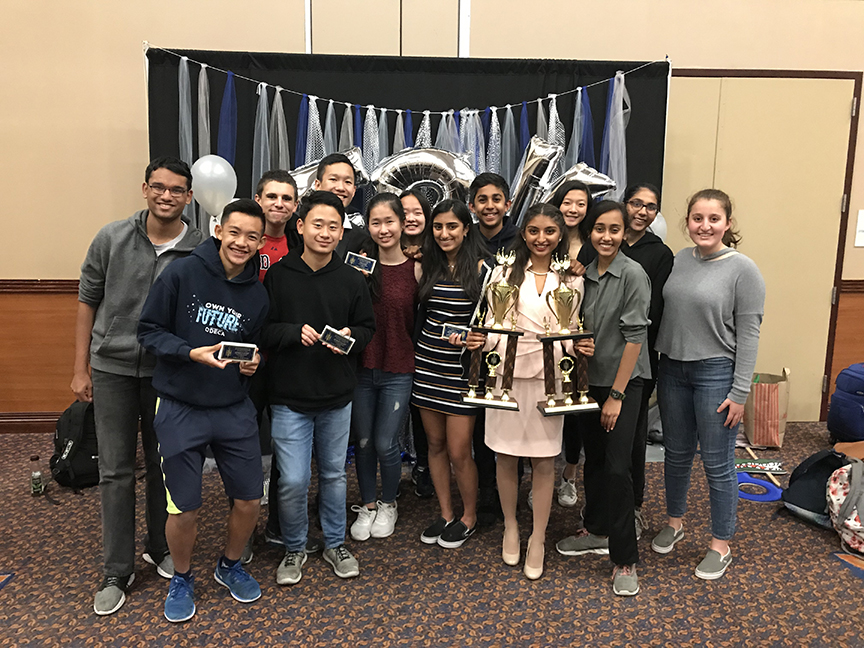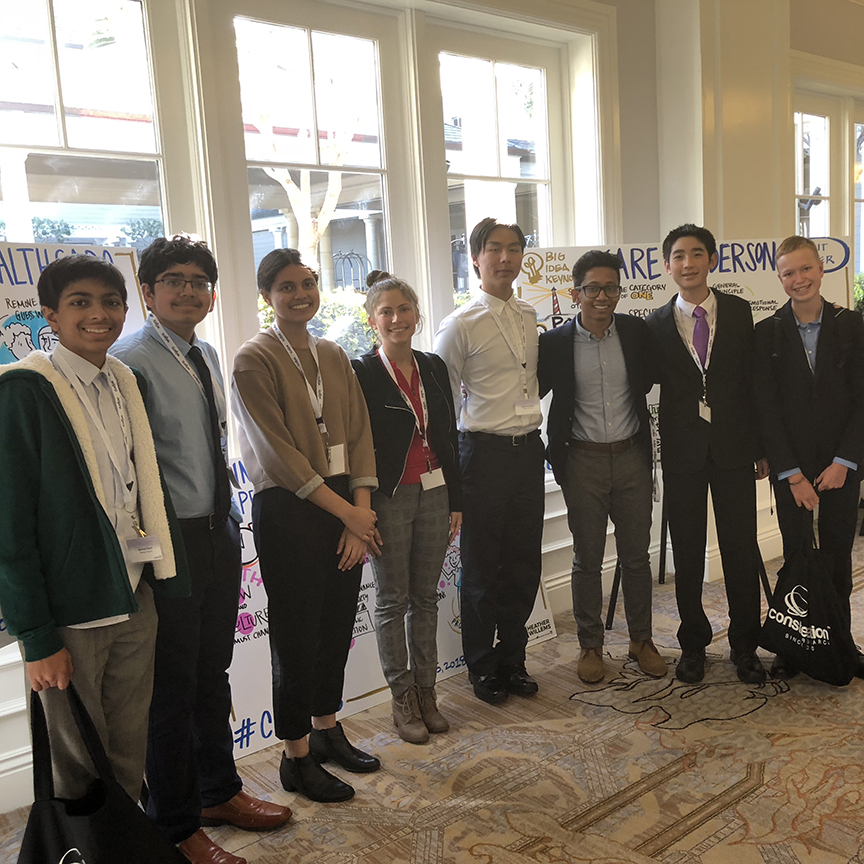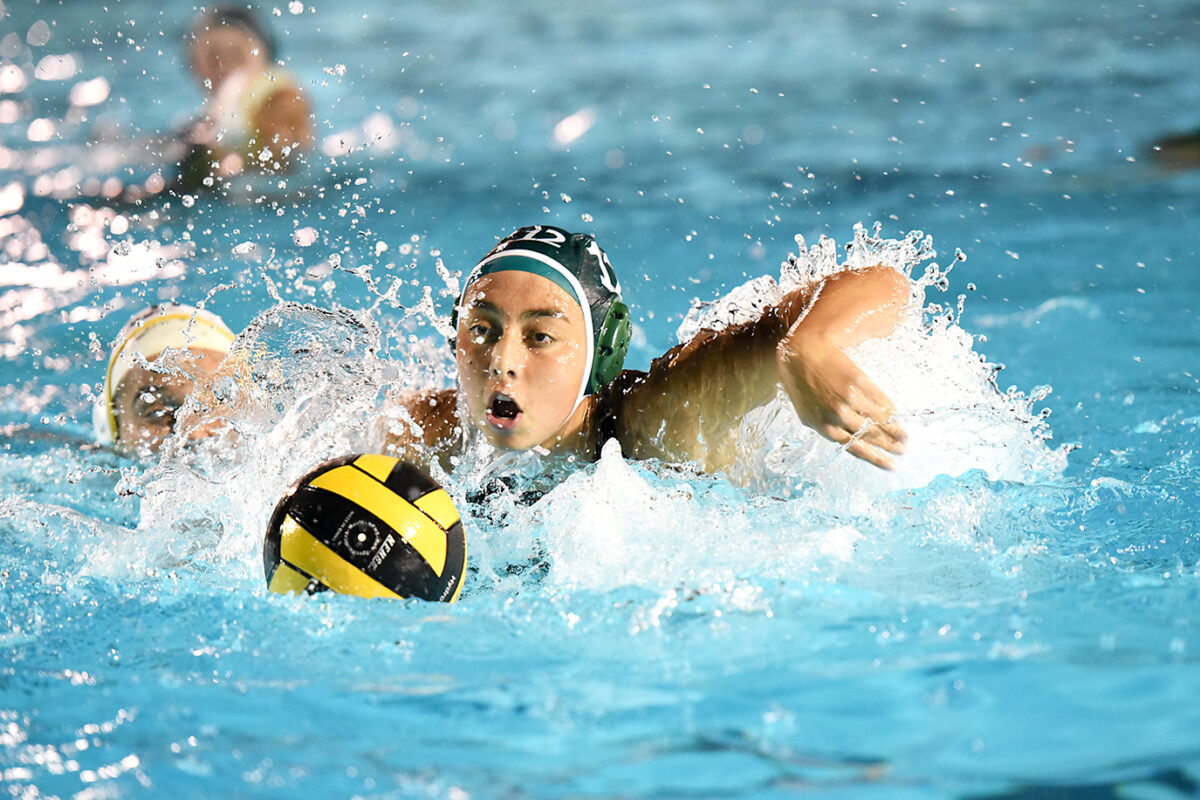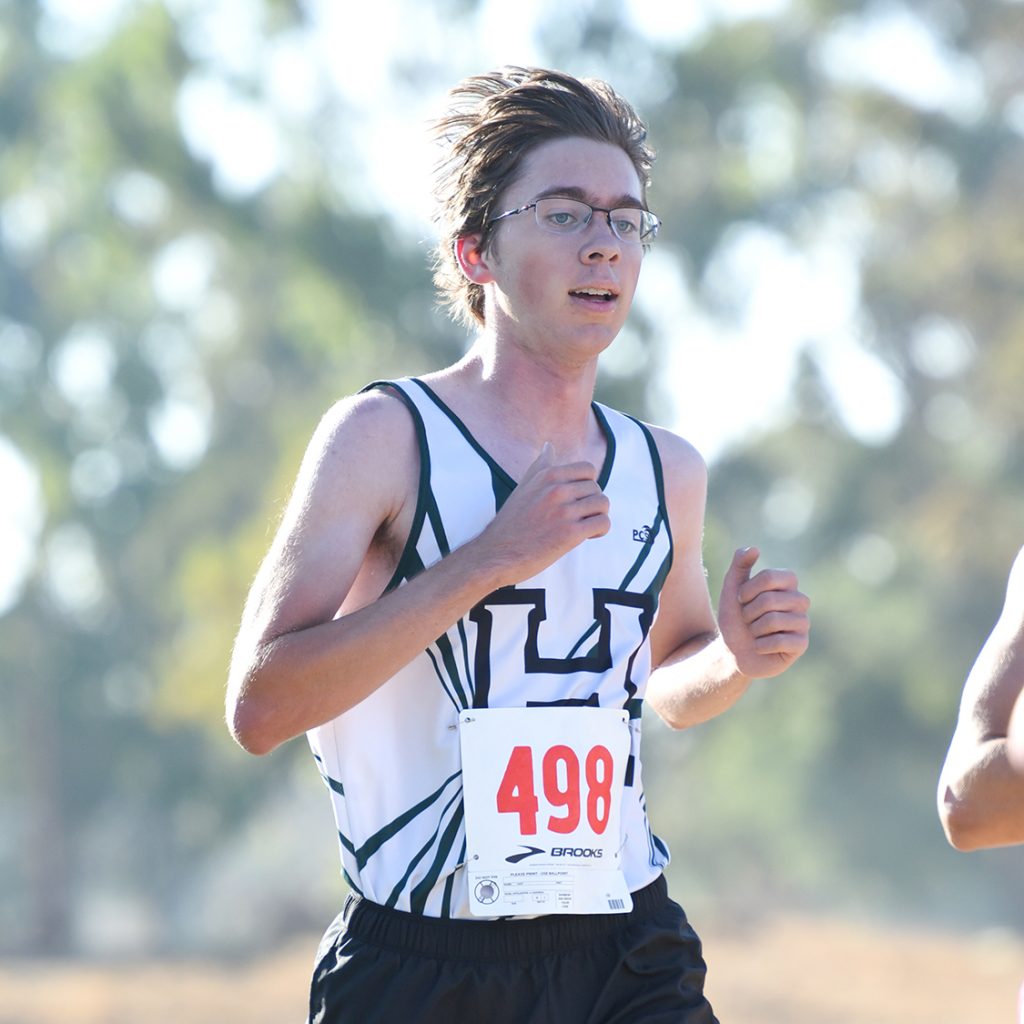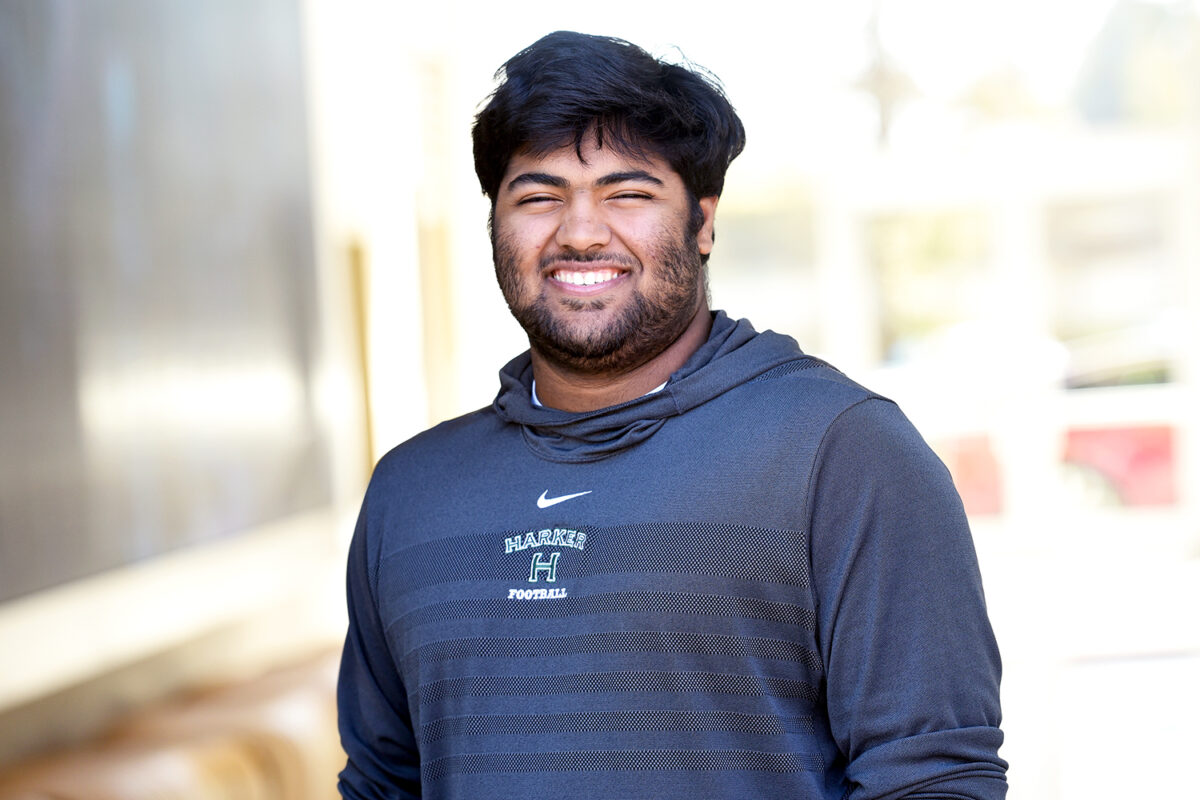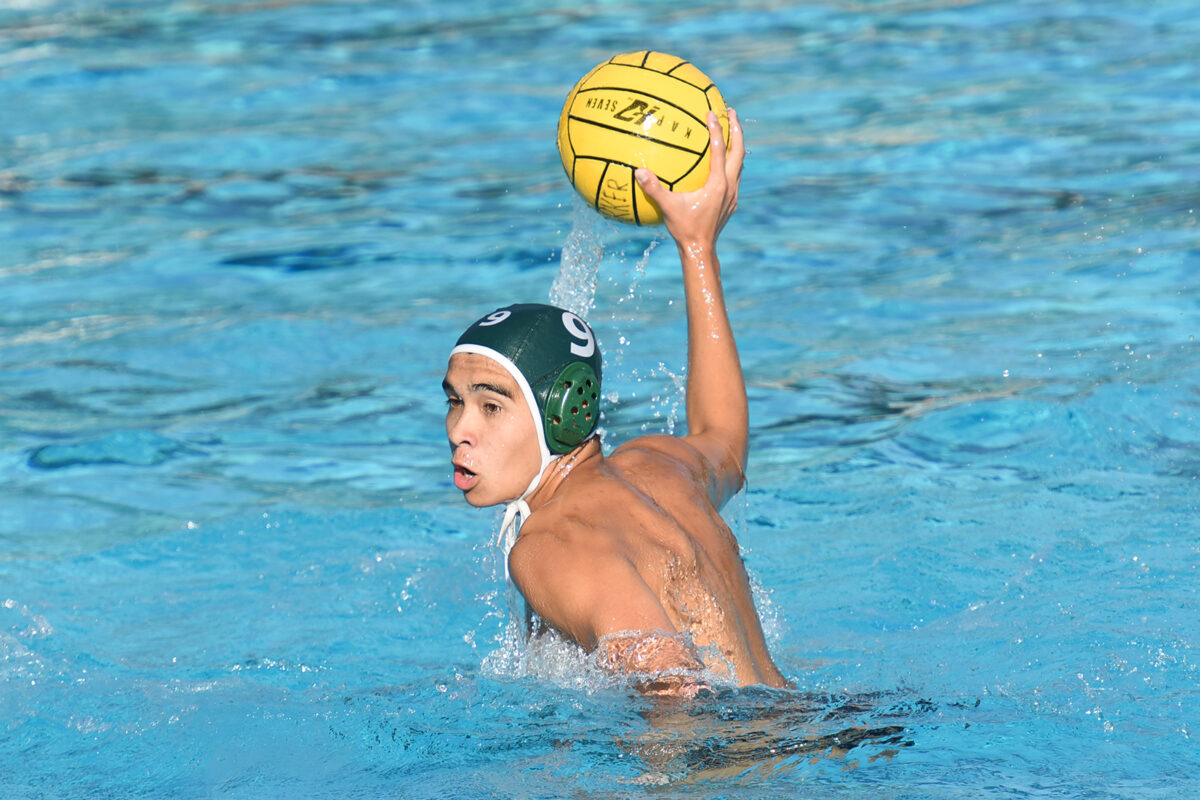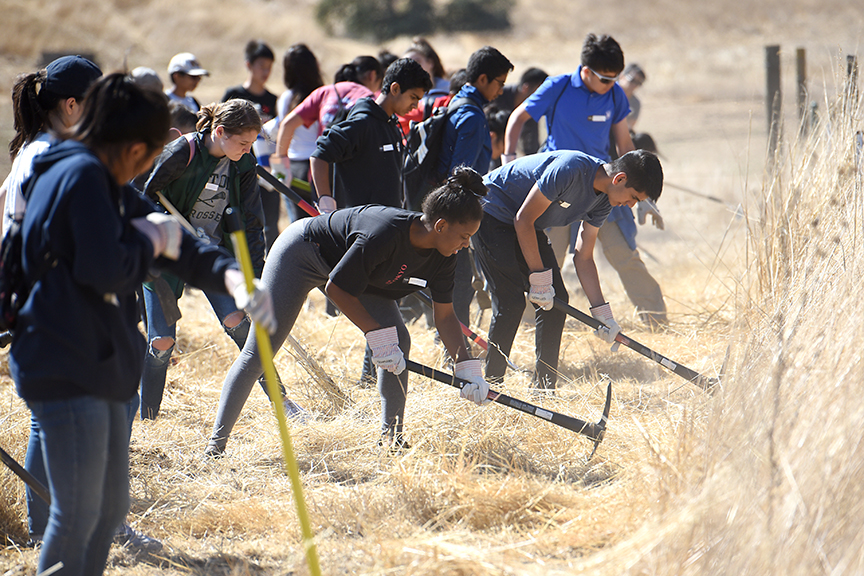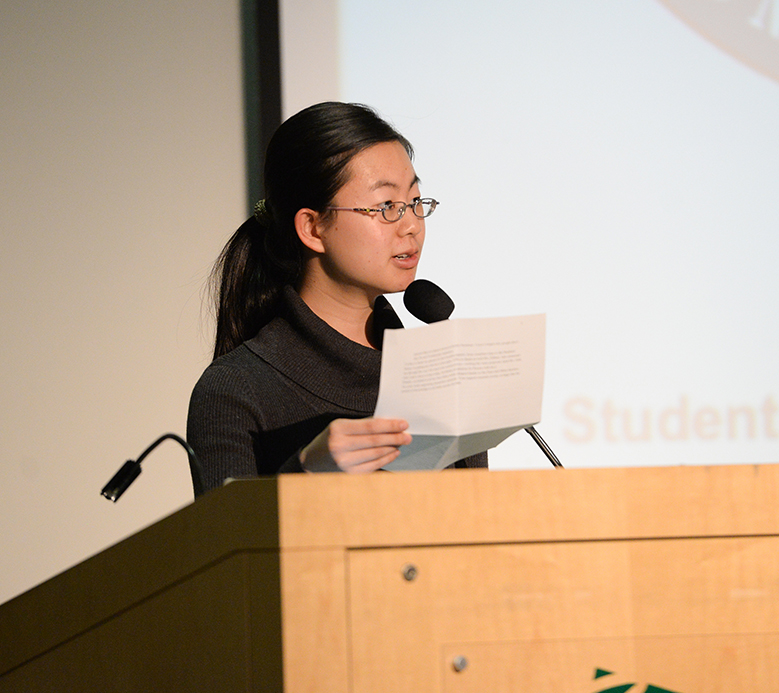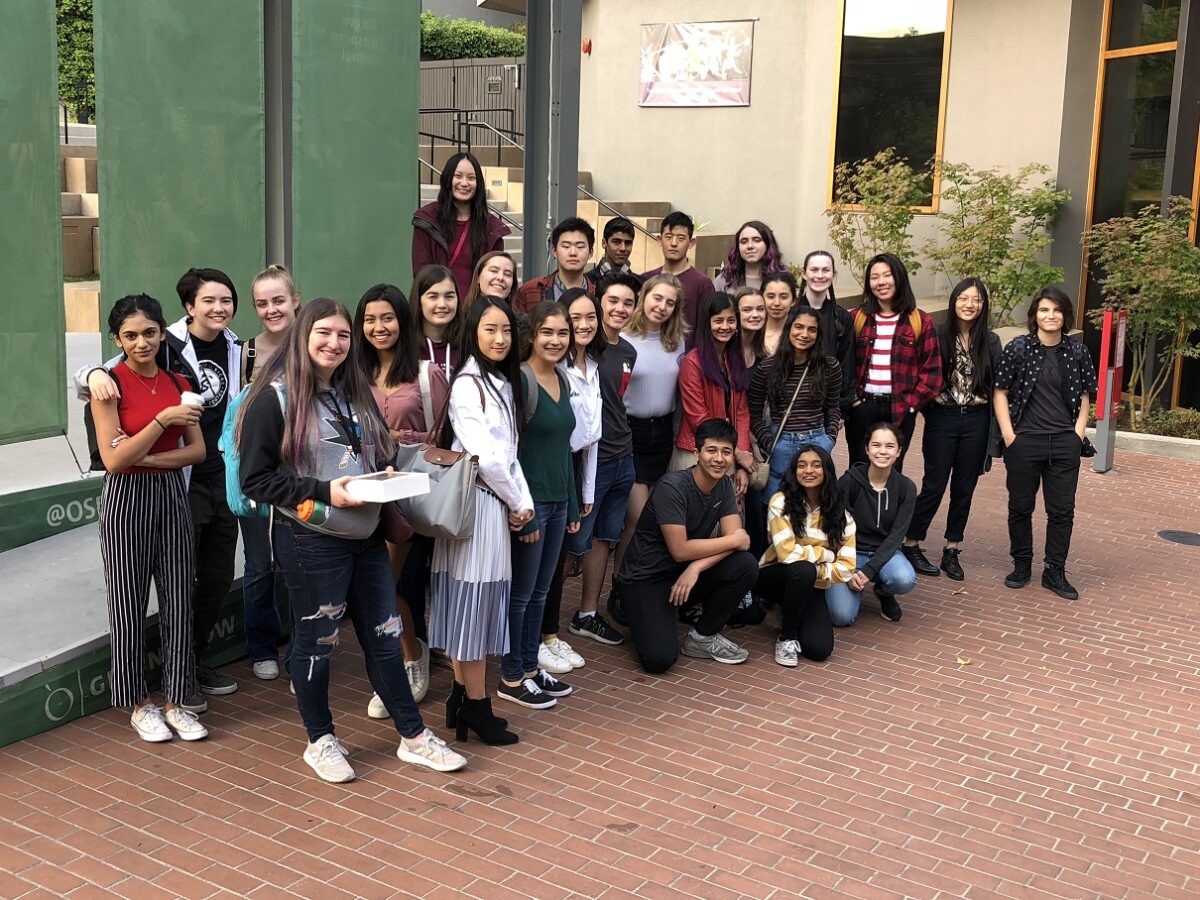The speech and debate team has won awards in both local and national events in all five major events (policy debate, speech, Lincoln-Douglas debate, public forum debate and Congress).
Upper School
Students attend career conference on technology-oriented careers in Half Moon Bay
Career Connect took seven students to the Constellation Connected Enterprise Conference at the Ritz Carlton in Half Moon Bay this week.
Girls water polo, US and MS golf win league tournaments as CCS begins
Girls Water Polo The girls water polo team finished off one of the best seasons in school history with three wins in the SCVAL…
Big wins for Harker as the Eagles soar into the playoffs
Cross Country The Eagles ran very well in their final cross country race before the league championships in two weeks. Ryan Adolf, grade 12,…
Senior accepted into New York Academy of Sciences Junior Academy
The New York Academy of Sciences accepted senior Ayush Vyas into the NYAS Junior Academy
Harker teams go 9-1 for the week as playoffs approach
Football The football team improved to 6-2 on the year as it soundly defeated the Oakland Military Institute 62-18 on Friday night. Once again,…
Grade 9 visits Coyote Valley for annual service trip
The Class of 2022 visited the Coyote Valley Open Space Preserve on Oct. 10 for this year’s Frosh Service Trip. Students spent the day…
Alumna’s Mitra paper published in Stanford undergrad journal
Tiffany Zhu ’17, now at Stanford, had her Mitra Family Endowment for the Humanities paper, written while at Harker, published in the spring 2018 issue of the Stanford Undergraduate Research Journal.
Theater and literature lovers head to Oregon Shakespeare Festival
Last month, 29 students headed to Ashland, Ore., for the Oregon Shakespeare Festival. This annual trip, established in 2009, gives students with a love of literature and theater the chance to enhance their understanding not just of Shakespeare but also the elements of storytelling.
Girls volleyball and girls water polo take second in tournaments as girls golf and football dominate
Girls Golf It was a very busy and successful, week for the girls golf team. The girls started the week with a 194-297 win…
